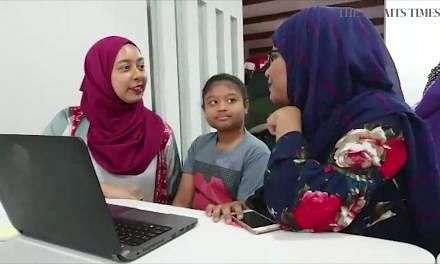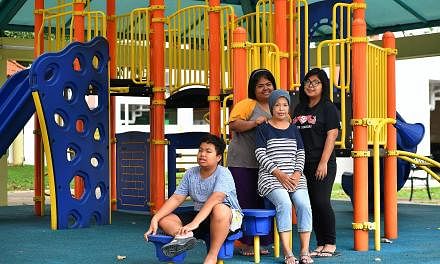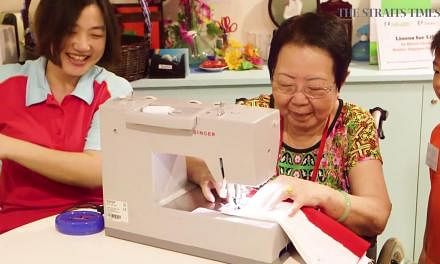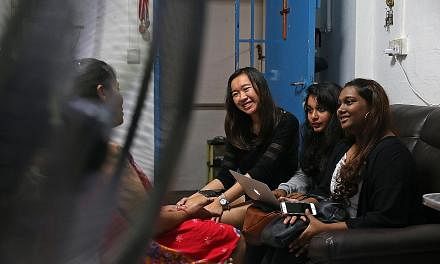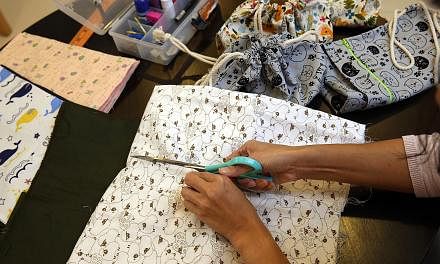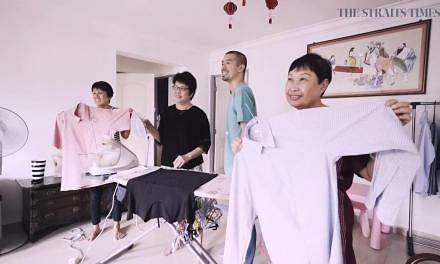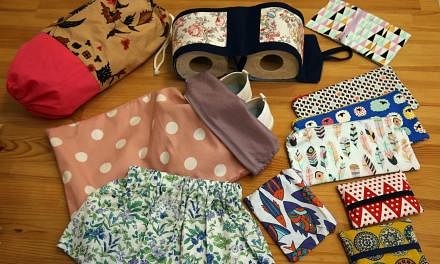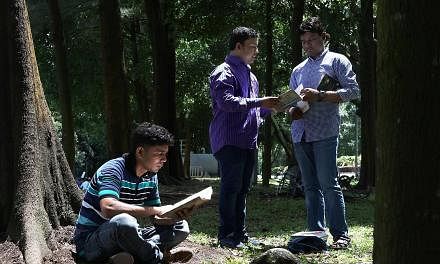Many of the people in the sex trade desire a more stable life.
This is a belief held by Mrs Mercy Ho, 36, the head of Tamar Village, a daytime restoration centre for people here who have been affected by or involved in the sex trade.
"They, too, want to be a good husband, wife, father, mother, son and daughter. They long to belong to a stable family. People don't often think of them in that way," she said.
Tamar Village, founded in 2010, is a subsidiary of charity Mercy Centre.
Since then, it has helped about 12 women, as well as their partners and children, and engaged with another 18. All the women are Singaporean, and of different races. The youngest is 20, the oldest in her 60s. Most have partners, and some have as many as five children.
The women sew handicrafts, cook, learn to brew coffee, socialise and have lunch together. They also go for counselling and learn to manage their money. There is a playroom for children, although the centre encourages women to enrol them in schools as soon as possible.
The women at the centre - which is open only in the daytime and is not a shelter - have left the sex industry.
Tamar Village's co-founders Shih Shu Hui and Lois Loh, who have since left the centre, were inspired by Tamar Centre in Pattaya, Thailand, which rehabilitates Thai girls and women who have been forced into prostitution.
There is no "average" time a woman stays at the centre, Mrs Ho said, because every woman is different. They pick up skills to help them leave the industry and find jobs.
All the former sex workers at Tamar Village have been women, although men are welcome too.
Many were runaways when they were teenagers, and are lowly educated - having completed only primary school, or dropped out of secondary school or the Institute of Technical Education. They owed their friends money, got into bad company and spent time in jail for theft, drugs and violence. Estranged from their families, many live in cheap hotels in the Geylang area.
They often learn of the centre through word of mouth, and the centre's staff also approach women on the streets. While none of them has HIV/Aids, some have contracted sexually transmitted diseases.
In 2015, the centre started working more closely with the women's partners, including husbands - many of whom are lowly educated, have problems with authority figures and find it hard to keep a job.
There are several phases to the restoration programme. People who are new to the centre focus on turning up for work consistently, and those who have been there for longer are encouraged to think about finding stable housing.
The centre has four staff, about 15 volunteers and five counsellors. Each woman is paired with an individual volunteer where possible.
The centre occupies several rooms on the ground floor of a long, low-rise block in a fenced compound in Geylang Lorong 23 with a nondescript entrance.
The centre pays its beneficiaries $40 a day for their work. The women cook and sew handicrafts which are put up for sale. The partners, who visit less frequently, busy themselves with cleaning, gardening, and repair and woodwork.
Two men, six women and three children were at the centre when The Straits Times visited it a fortnight ago. Sarah (not her real name), in her late 30s, said her two years at Tamar Village made her more disciplined.
"Here, everybody is friendly. They never... judge us. But outside, it is different," she said.
Once they are ready, they are expected to return to work in mainstream society, but can remain in regular contact with the centre. Of the four who have reintegrated into society, one is now a housewife, and the other three have blue-collar jobs.
It can take years before a person decides to step into the restoration centre, and even longer before she feels ready to return to mainstream society. There are also some who end up returning to prostitution.
Trust and a lack of willpower are some challenges that the women grapple with.
In some cases, the problems are inter-generational. A woman's grandmother and mother could have been in the sex business.
"I have learnt that it is worth it to give a lot of time, energy and care to just one person," said Mrs Ho.
"Maybe we won't see a lot of what we call 'big' changes, but there is a gradual improvement in the way they live life, and honour and respect others.
"We need volunteers who are ready to stop (and help one person) for a long time - not months, but years."
•To find out how you can help, e-mail contactus@tamarvillage.org



